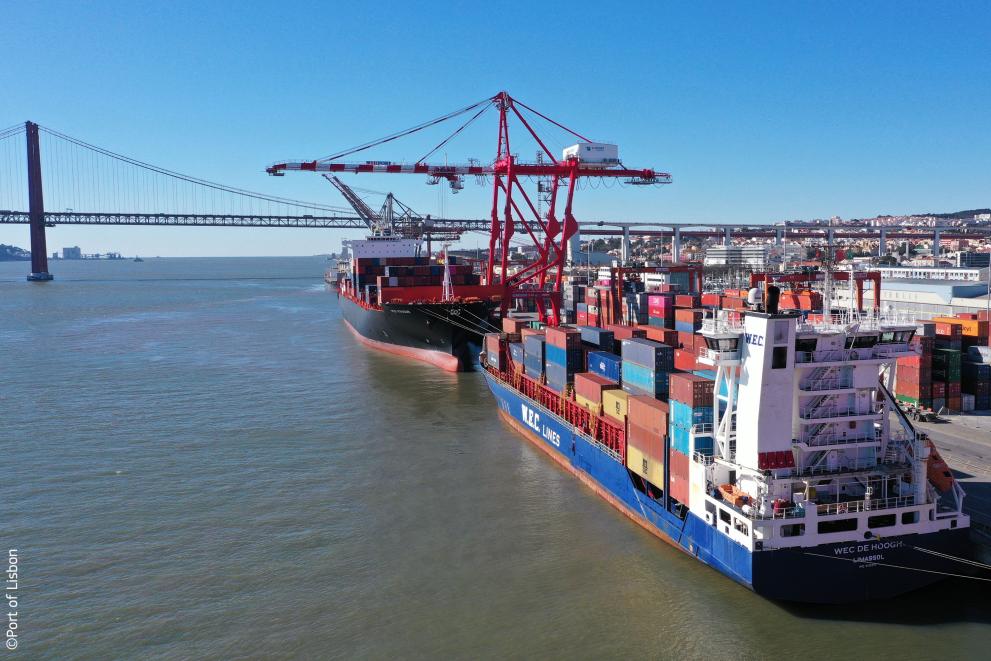
Ports are among the main entry points of the ocean. Created in 2021, the Atlantic Smart Ports Blue Acceleration Network (AspBAN) involves more than 40 ports in different regions of the Atlantic. The objective of the project is to transform ports into hubs for the development of new and sustainable businesses in the blue economy. This will help ports both diversify their activities and reduce their carbon footprint. The project has received funding from the European Maritime and Fisheries Fund.
A strategic role as launch pads for a new generation of businesses in the blue economy
Most ports have industrial activities linked to maritime operations and a role in the logistics and tourism sectors. Therefore, ports have all the conditions to become innovation hubs in the sustainable blue economy, integrating in the same physical space research centres, mature companies, start-ups and scale-ups.
The potential of the sea and its impact on various areas have made the economy of the sea one of the sectors with the biggest evolution in recent years. However, this growth also revealed the need for this more traditional ecosystem to innovate, making it more sustainable and competitive. AspBAN was created with that purpose in mind. It is building the first sustainability and innovation ecosystem in the Atlantic space, creating a pioneering platform that could be replicated in other geographies,
explains Dr. Ana Pinela, leader of the international consortium setting up the project.
A record number of partners for community building
The AspBAN consortium counts with the participation of Portugal, Spain, France, Ireland, Netherlands, Norway and the USA. In addition to the involvement of more than 40 ports in different regions in the Atlantic, the consortium counts on the participation of 12 European and North American partners and the support of almost 200 strategic partners from all over the world - private companies, investment funds, accelerators, business associations, and political entities.
A pioneering approach focused on innovation
AspBAN’s operations can be divided into two main areas:
- the community building around the ports and its wider networks; and
- the innovation programmes that will mobilise financing. These programmes include:
- The Acceleration Services, a tailor-made programme that attracted around 200 startups and was fully adapted to the needs of the top 80 start-ups that were selected after a thorough evaluation. These start-ups were chosen among innovative companies whose cutting-edge solutions can contribute to boosting digitalisation and operational efficiency as well as facilitating the green transition and emergence of new businesses for the ports in the sustainable blue economy.
- The Open Innovation, a tailor-made acceleration scheme with the main objective of establishing concrete pilot projects between start-ups and ports. This should increase the chances of developing innovative products and solutions that effectively respond to the challenges of the ports.
According to Dr. Pinela, 'at present, there is no organised innovation ecosystem in the EU Atlantic space for achieving this kind of impact, nor in another maritime basin. As such, AspBAN is pioneering this approach in EU’s maritime policy, generating an investment-friendly context for a sustainable ocean economy, piloting the application of the most recent EU policies'.
Mobilising funding for innovation and decarbonisation in ports
Thanks to its collaboration efforts, AspBAN has already mobilised the support of approximately 30 funds and financial entities (such as BlueInvest, the European Investment Bank and the Dubai Ports World) that are actively participating in the project. AspBAN will leverage the different stakeholders of the network, connecting them, and bringing in private investors.
This will result in a final pool of 50 innovative products or solutions to be developed as pilots in 30 ports, attracting €6,000,000 in direct private investment, mobilising €5 billion of potential private investment and reducing CO2 emissions by at least 100,000 tonnes in the operations of the 30 ports.
We want to contribute to repositioning the role of ports and their business models and to a more sustainable decarbonisation in economic terms. As such, the areas we intend to boost are all those that lead to the decarbonisation, digitisation and circularity of ports and sectors of the blue economy that operate in this context,
says Pedro Rocha Vieira, Global CEO of Beta-I, coordinator of the project.
By supporting the transformation of the EU Atlantic ports into sustainable blue economy hubs, AspBAN fosters the European Green Deal.
More information
Website of the project: https://aspban.eu/en/home/
AspBAN Bootcamp: https://pilotsbootcamp.aspban.eu/?_ga=2.11338354.754936204.1676909576-1452744772.1661262555
Details
- Publication date
- 1 March 2023
- Author
- Directorate-General for Maritime Affairs and Fisheries




